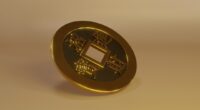Minting NFTs, or non-fungible tokens, has become a popular trend in the digital marketplace. NFTs are unique digital assets stored on a blockchain, making them one-of-a-kind and non-interchangeable. The minting process involves creating a digital asset, such as artwork, music, videos, or virtual real estate, and tokenizing it on a blockchain to establish ownership and provenance.
NFTs have gained significant traction in the art world, allowing artists and creators to sell their work directly to collectors without intermediaries. The technology has also expanded into other industries, including gaming, entertainment, and real estate. For beginners entering the NFT space, understanding the basics of minting and the potential applications of this technology is crucial.
The process of minting NFTs requires knowledge of blockchain technology, digital ownership, and the creation and sale of unique digital assets. As the NFT market continues to evolve, it is essential for newcomers to stay informed about the latest trends and developments in this rapidly changing industry. A solid understanding of NFT minting can open up various career opportunities in the crypto space and position individuals for success in this emerging field.
Key Takeaways
- Mint NFTs are unique digital assets that are created and stored on the blockchain, representing ownership of a specific item or piece of content.
- The minting process involves creating and tokenizing digital assets, and it requires a step-by-step guide to ensure successful creation and storage on the blockchain.
- NFT jobs in the crypto industry include roles such as NFT artist, NFT developer, NFT marketer, and NFT community manager, among others.
- Landing remote NFT jobs in the digital marketplace requires networking, building a strong portfolio, and staying updated on industry trends and developments.
- Crypto jobs in the Web3 ecosystem are diverse and include roles in decentralized finance (DeFi), blockchain development, smart contract auditing, and more.
Mastering the Minting Process: Step-by-Step Guide
Choosing the Right Blockchain Platform
The first step in minting NFTs is to select a blockchain platform that supports NFTs, such as Ethereum, Binance Smart Chain, or Flow. Each blockchain has its own standards and requirements for minting NFTs, so it’s essential to research and understand the specific guidelines for the chosen platform.
Creating a High-Quality Digital Asset
Once a blockchain platform is selected, individuals can begin creating their digital asset. This could be an original artwork, a piece of music, a video clip, or any other unique digital creation. It’s important to ensure that the digital asset is of high quality and has value to potential buyers in the NFT marketplace.
Minting the NFT
After creating the digital asset, individuals can use an NFT marketplace or platform to mint their NFT. This involves uploading the digital file, adding metadata such as title, description, and properties, and then paying the required fees to tokenize the asset on the chosen blockchain. Once the NFT is minted, it becomes a unique digital collectible that can be bought, sold, and traded on various NFT marketplaces.
Mastering the Minting Process
Mastering the minting process requires attention to detail, creativity, and an understanding of blockchain technology. By following a step-by-step guide and leveraging resources and tutorials available online, individuals can learn how to mint NFTs effectively and position themselves for success in the growing NFT industry.
Exploring NFT Jobs in the Crypto Industry

The rise of NFTs has created a demand for various job opportunities in the crypto industry. From artists and creators to developers and marketers, there are diverse roles available for individuals looking to work in the NFT space. Some common NFT jobs include NFT artist, blockchain developer, NFT marketer, community manager, and NFT platform manager.
NFT artists are responsible for creating digital artwork, collectibles, and other unique assets that can be tokenized as NFTs. These artists often collaborate with collectors and platforms to sell their work and build a following in the NFT community. Blockchain developers play a crucial role in building and maintaining the infrastructure for minting and trading NFTs on blockchain platforms.
They are responsible for writing smart contracts, developing decentralized applications (dApps), and ensuring the security and functionality of NFT marketplaces. NFT marketers focus on promoting NFT collections, artists, and platforms to attract buyers and collectors. They utilize social media, influencer partnerships, and other marketing strategies to increase visibility and engagement within the NFT community.
Community managers engage with NFT enthusiasts and collectors to foster a sense of belonging and loyalty within NFT communities. They facilitate discussions, organize events, and provide support to community members. NFT platform managers oversee the operations of NFT marketplaces and platforms, ensuring that they run smoothly and efficiently.
They collaborate with artists, collectors, and developers to enhance user experience and drive growth in the NFT marketplace. As the demand for NFT jobs continues to grow, individuals with diverse skills and expertise can explore rewarding career opportunities in the crypto industry.
How to Land Remote NFT Jobs in the Digital Marketplace
| Metrics | Data |
|---|---|
| Number of Remote NFT Jobs | Increasing |
| Top Skills in Demand | NFT Development, Blockchain, Digital Art |
| Remote Work Platforms | Upwork, Freelancer, Fiverr |
| Networking Importance | High |
| Salary Range | Varies based on skills and experience |
Landing remote NFT jobs in the digital marketplace requires a strategic approach and a strong understanding of the skills and qualifications needed for various roles in the NFT space. One way to secure remote NFT jobs is by building a strong portfolio that showcases your expertise as an artist, developer, marketer, or community manager. This could include examples of your digital artwork, smart contract projects, marketing campaigns, or community engagement initiatives.
Networking within the NFT community is also essential for landing remote jobs in the digital marketplace. Engaging with artists, collectors, platforms, and industry professionals can lead to valuable connections and opportunities for collaboration or employment. Attending virtual events, joining online forums and social media groups, and participating in NFT communities can help individuals expand their network and stay informed about job openings in the remote NFT space.
Another effective strategy for landing remote NFT jobs is to stay updated on job boards and platforms that specialize in crypto and blockchain-related positions. Many companies and startups in the NFT space post remote job opportunities on websites dedicated to crypto careers. By regularly checking these job boards and submitting applications for relevant positions, individuals can increase their chances of securing remote NFT jobs in the digital marketplace.
Finding Crypto Jobs in the Web3 Ecosystem
The Web3 ecosystem encompasses a wide range of decentralized technologies and applications that are reshaping the internet and digital economy. Within this ecosystem, there are numerous opportunities for finding crypto jobs that align with individuals’ skills and interests. Some common crypto jobs in the Web3 ecosystem include blockchain developer, decentralized finance (DeFi) specialist, smart contract auditor, crypto journalist, and Web3 product manager.
Blockchain developers play a crucial role in building decentralized applications (dApps), protocols, and infrastructure for various blockchain networks within the Web3 ecosystem. They are responsible for writing smart contracts, implementing consensus algorithms, and optimizing blockchain performance. DeFi specialists focus on developing financial products and services that operate on decentralized platforms using blockchain technology.
They often work on projects related to lending, borrowing, trading, and yield farming within the DeFi space. Smart contract auditors are responsible for reviewing and assessing smart contracts for security vulnerabilities and potential risks. They play a critical role in ensuring the integrity and reliability of smart contracts deployed on blockchain networks.
Crypto journalists cover news, trends, and developments within the crypto industry, providing valuable insights and analysis for audiences interested in Web3 technologies. Web3 product managers oversee the development and launch of decentralized applications and platforms within the Web3 ecosystem. They collaborate with cross-functional teams to define product requirements, prioritize features, and drive user adoption of Web3 products.
As individuals explore opportunities in the Web3 ecosystem, they can leverage their skills and expertise to pursue rewarding careers in crypto jobs that contribute to the advancement of decentralized technologies.
Navigating the World of Web3 Jobs: Tips and Resources

Staying Informed and Educated
Navigating the world of Web3 jobs requires individuals to stay informed about industry trends, acquire relevant skills, and leverage resources that can help them succeed in this rapidly evolving space. One tip for navigating Web3 jobs is to continuously educate oneself about blockchain technology, decentralized finance (DeFi), non-fungible tokens (NFTs), and other key components of the Web3 ecosystem. This could involve taking online courses, attending workshops or conferences, or joining communities dedicated to Web3 technologies.
Acquiring Technical Skills
Acquiring technical skills related to blockchain development, smart contract programming, cryptography, or decentralized application (dApp) development can enhance individuals’ qualifications for Web3 jobs. By gaining hands-on experience with blockchain platforms such as Ethereum or Polkadot, individuals can position themselves as valuable candidates for technical roles within the Web3 ecosystem.
Leveraging Resources and Networking
Leveraging resources such as job boards specializing in crypto careers, industry publications, and professional networks can provide valuable insights into job opportunities within the Web3 space. Staying connected with industry professionals through social media platforms like LinkedIn or Twitter can also lead to networking opportunities and potential job leads within the Web3 ecosystem.
Adapting to the Dynamic Industry
As individuals navigate the world of Web3 jobs, it’s important to remain adaptable and open-minded about exploring different roles and career paths within this dynamic industry. By staying proactive in seeking out learning opportunities and staying connected with industry trends and developments, individuals can position themselves for success in pursuing rewarding careers within the Web3 ecosystem.
Advancing Your Career in the NFT and Crypto Space
Advancing one’s career in the NFT and crypto space involves continuous learning, networking, and staying informed about industry trends that can shape future opportunities. One way to advance a career in this space is by pursuing advanced education or certifications related to blockchain technology, cryptocurrency economics, or decentralized finance (DeFi). This could involve enrolling in specialized courses or obtaining professional certifications that demonstrate expertise in specific areas of crypto and blockchain.
Networking with industry professionals at conferences, meetups, or virtual events can provide valuable connections that lead to mentorship opportunities or potential collaborations on projects within the NFT and crypto space. Building relationships with experienced professionals can offer insights into career advancement strategies and help individuals navigate challenges or opportunities within this rapidly evolving industry. Staying informed about regulatory developments, market trends, and technological advancements within the crypto space is essential for advancing one’s career.
By following industry news sources, subscribing to newsletters or podcasts focused on crypto topics, individuals can gain valuable insights that inform their career decisions and help them anticipate changes or opportunities within the NFT and crypto space. As individuals advance their careers in the NFT and crypto space, they can also consider contributing thought leadership content through blogging, speaking engagements at industry events or webinars focused on crypto topics. Sharing insights or expertise can help individuals establish themselves as thought leaders within the industry while expanding their professional network and visibility within the crypto community.
In conclusion, navigating careers in the NFT and crypto space requires individuals to stay informed about industry trends while continuously developing their skills through education and networking opportunities. By leveraging resources available within this dynamic industry while remaining adaptable to changes or opportunities that arise within this rapidly evolving space can position individuals for long-term success in pursuing rewarding careers within the NFT and crypto space.
FAQs
What is an NFT?
An NFT, or non-fungible token, is a digital asset that represents ownership or proof of authenticity of a unique item or piece of content, such as artwork, music, videos, or other digital files.
What is minting an NFT?
Minting an NFT refers to the process of creating and tokenizing a digital asset on a blockchain, which involves uploading the digital file, adding metadata, and generating a unique token that represents ownership of the asset.
How do you mint an NFT like a pro?
Minting an NFT like a pro involves understanding the technical and creative aspects of the process, including choosing the right blockchain platform, creating high-quality digital content, and marketing and promoting the NFT effectively.
What are some tips for creating a successful NFT?
Some tips for creating a successful NFT include focusing on high-quality and unique digital content, building a strong brand and story around the NFT, engaging with the community, and leveraging social media and other marketing channels to reach potential buyers.
What are some popular blockchain platforms for minting NFTs?
Some popular blockchain platforms for minting NFTs include Ethereum, Binance Smart Chain, Flow, Tezos, and Solana, each offering different features and capabilities for creating and trading NFTs.
What are some considerations for pricing and selling an NFT?
Considerations for pricing and selling an NFT include factors such as the rarity and uniqueness of the digital content, the artist’s reputation and following, current market trends, and the overall demand for NFTs in the specific category or niche.





